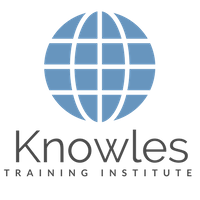Skip to content
Active RecallIntern1bksiuevej76kHhK
Active Recall
The Active Recall Advantage: Boosting Memory and Retention through Engaged Learning
- Retrieval Practice: Active recall involves actively retrieving information from memory, rather than passively reviewing it. This retrieval practice strengthens memory pathways and improves the ability to recall information later.
- Deep Processing: Active recall requires engaging in deep processing of information. By actively generating answers or explanations, individuals actively process and integrate the information, leading to better encoding and retention.
- Metacognitive Awareness: Active recall promotes metacognitive awareness, where individuals gain insights into their own learning and memory processes. By actively monitoring and evaluating their recall performance, learners can identify areas of weakness and adjust their studying strategies accordingly.
- Error Correction: Engaging in active recall allows for error correction. When mistakes are made during recall, they provide valuable feedback that helps individuals identify and correct misconceptions, strengthening memory and improving accuracy.
- Elaboration and Explanation: Active recall involves elaborating on and explaining the information being recalled. By organizing and articulating the knowledge in one’s own words, individuals deepen their understanding, reinforcing memory retention.
- Contextual Retrieval: Active recall helps create context-dependent memories. By practicing recall in conditions similar to the learning environment, such as recreating the study setting or mentally visualizing the context, memory retrieval is enhanced.
- Spaced Repetition: Active recall can be combined with spaced repetition techniques. By reviewing information at strategically spaced intervals, individuals engage in active retrieval practice, reinforcing memory over time and improving long-term retention.
- Interleaving: Active recall encourages interleaving, which involves switching between different topics or concepts during practice. This method challenges the brain to retrieve and differentiate between various pieces of information, leading to improved memory and better transfer of knowledge.
- Self-Assessment: Active recall facilitates self-assessment of learning progress. By actively testing oneself and monitoring the accuracy and completeness of recall, individuals gain a clearer understanding of their knowledge gaps and can focus their efforts on areas that require further review.
- Application and Transfer: Active recall promotes the application and transfer of knowledge to new situations. By actively retrieving information and applying it to different contexts or problem-solving scenarios, individuals strengthen memory recall and enhance the transferability of learned concepts.
Page load link



